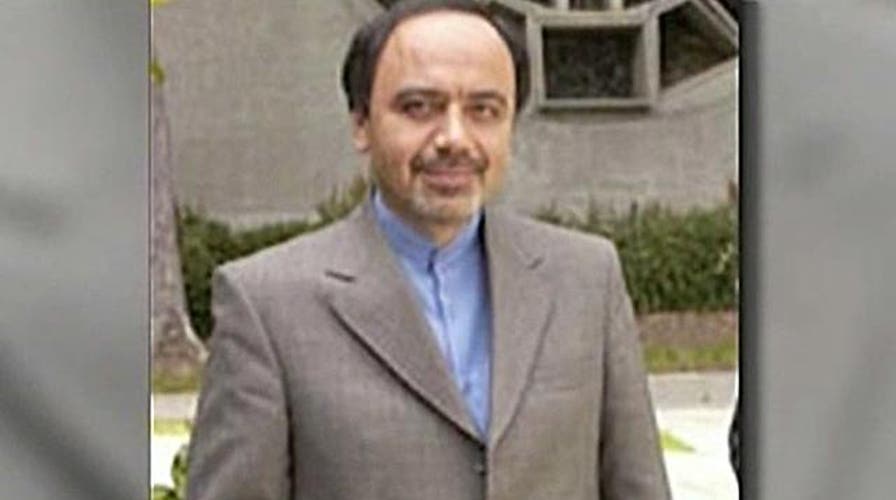Will Iranian ambassador to UN been barred from US?
A look at the allegations against Hamid Abutalebi
The White House announced Friday that the U.S. will not issue a visa to Iran's choice for U.N. ambassador, over concerns about his involvement in the 1979 U.S. Embassy hostage crisis in Tehran.
The decision comes after Congress earlier this week approved a bill that would bar Hamid Abutalebi from stepping on U.S. soil. White House Press Secretary Jay Carney said the White House is reviewing that legislation but announced that Abutalebi would be barred anyway.
"We have informed the United Nations and Iran that we will not issue a visa to Mr. Abutalebi," Carney said. "We certainly share the intent of the bill passed by Congress as we have already told the U.N. and Iran that we will not issue a visa."
State Department spokeswoman Jen Psaki said it was "not a viable nomination."
Denying visas to U.N. ambassadorial nominees or to foreign heads of state who want to attend United Nations events in the United States is rare, if not unprecedented.
American officials, though, have objected to the selection of Abutalebi because of his alleged participation in a Muslim student group that held 52 Americans hostage for 444 days in the 1979 incident. The concerns became a rare point of bipartisan agreement in Congress. The House unanimously approved the legislation on Thursday by voice vote, four days after a similar vote in the Senate.
Former American hostage Barry Rosen told Fox News on Friday that the decision to bar Iran's ambassadorial pick is a "great victory for America."
"There are special moments in American political life when grassroots activism and a bipartisan Congressional action moves an Administration to do the right thing. This is one of those rare moments in the history of the United States," he said.
Sen. Ted Cruz, R-Texas, who sponsored the measure in the Senate, said Friday he appreciates the president "doing the right thing" and blocking the ambassador from the U.S.
"I think that's a real moment of clarity," Cruz told Fox News, in describing the bipartisan agreement on the issue.
Earlier this week, Cruz called the nomination "a deliberate and unambiguous insult to the United States."
The Iranian government, reacting late Friday, objected to the visa denial. The Iranian Mission to the U.N. said: "It is a regrettable decision by the US Administration which is in contravention of international law, the obligation of the host country and the inherent right of sovereign member states to designate their representatives to the United Nations."
The Iranian Mission to the United Nations will be run by Deputy Permanent Representative and Charge d'Affairs Ambassador Hossein Dehghani while the dispute is settled.
The dispute comes amid nuclear talks between Iran and six world powers.
U.S. immigration law allows broad rejection of visas to foreigners and, in many cases, officials do not have to give an explicit reason for why other than to deem the applicant a threat to national security or American policy.
The law bars foreigners whose entry or activity in the U.S. would "have potentially serious adverse foreign policy consequences for the United States."
It also bars people who have engaged in terrorist activity, which the law defines as including seizing and detaining others; threatening to kill, injure or continue to detain them; and violent attacks on internationally protected persons such as diplomats and other agents of the U.S. government.
Iranian opposition leaders heralded the decision on Friday.
"This decision is prudent and should serve as an example for other countries not to allow Iranian regime's terrorists disguised as diplomats into their territory," said Soona Samsami, the U.S. representative of the National Council of Resistance of Iran, describing Abutalebi as a "terror mastermind."
Fox News' Eric Shawn, Jonathan Wachtel and The Associated Press contributed to this report.





